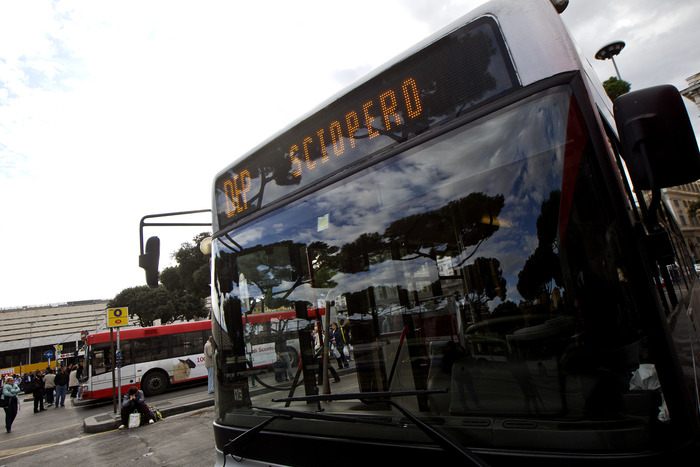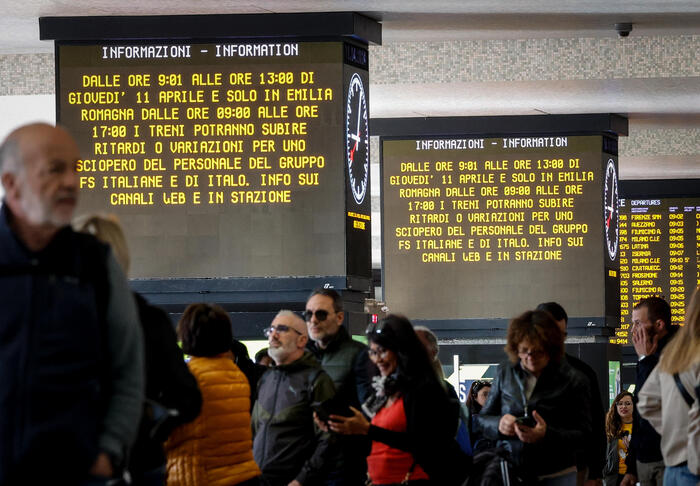Enlarge image
Tram in Munich: competition is great
Photo: Wolfgang Maria Weber / IMAGO
No bus today due to a lack of staff - this threatens more and more frequently in the future.
Because the local transport companies in Germany have great problems finding enough bus and train drivers.
At least half of the companies temporarily restricted their operations last year due to a lack of staff - this is the result of an industry survey by the Association of German Transport Companies (VDV).
"Perhaps there were even more," says Harald Kraus, chairman of the VDV personnel committee and at the same time labor director at Dortmunder Stadtwerke.
"In any case, I know almost nobody in the industry who hasn't had to shut down a line from time to time, for example."
77 percent of the companies surveyed stated that they expect a higher need for personnel in the transport service by 2030.
At the same time, according to the survey, it is precisely in this area that they will see the most departures by 2030.
Around 50 percent of the employees of these companies work in the driving service.
Staff shortages are increasing
"In the past, our industry has always been latently affected by downsizing because financing was often tight," explains Kraus.
»Now the financing is in place because local transport is becoming more and more important – but there are no employees.«
The transport companies surveyed assume that they will have to increase the number of their employees by around 20 percent by 2030 to expand the bus and train service - the VDV ultimately even expects a higher figure.
For 48 percent of the companies, filling vacancies in the transport service is currently the greatest challenge, followed by commercial and technical staff.
The competition is fierce, says Kraus: "We now compete with companies like Flaschenpost and Amazon, with whom we really don't want to be compared in terms of working conditions." , i.e. 3.60 euros more than the minimum wage.
"At Flaschenpost you have Sundays off - but then you forget that you also have to go up to the sixth floor with the crates of drinks," says Kraus.
Unions are demanding massive pay rises
The extent to which salaries in the industry will change in the near future depends on the further course of numerous collective bargaining negotiations.
In talks with Deutsche Bahn and 50 other companies, the railway and transport union (EVG) is demanding at least 650 euros more per month for employees and also some structural adjustments to the collective bargaining system.
The start of negotiations with DB ended last week after just two hours - the ideas of both sides are very far apart.
In other transport companies, meanwhile, the collective agreement of the public service is applied, which is also currently being negotiated.
But even in this collective bargaining dispute, there is hardly any progress - accordingly, last Friday there was a strike in local transport in numerous cities nationwide.
In addition to the VDV, which mainly represents public transport companies, the Federal Association of German Bus Companies (BDO) recently asked its members for more information about the shortage of skilled workers.
According to this company survey, 87,000 bus drivers will be missing by 2030. The BDO, in which many smaller, private bus companies are also connected, announced that there is currently a need for 7,800 people in mid-February.
Even if thousands of people were to report immediately for the driver service - the problem would only be solved in a few months.
At Stadtwerke Dortmund, for example, it takes about eight months from the first day of work, according to Kraus, before a new employee without a bus driver's license can drive through the city with passengers.
The period is similarly long for the Berliner Verkehrsbetriebe (BVG).
mik/dpa-AFX







